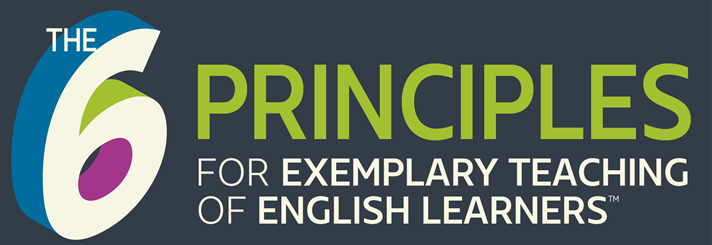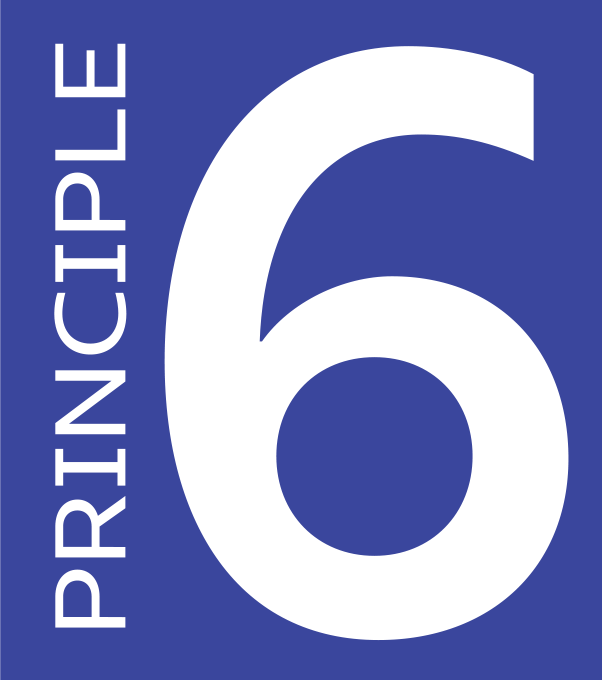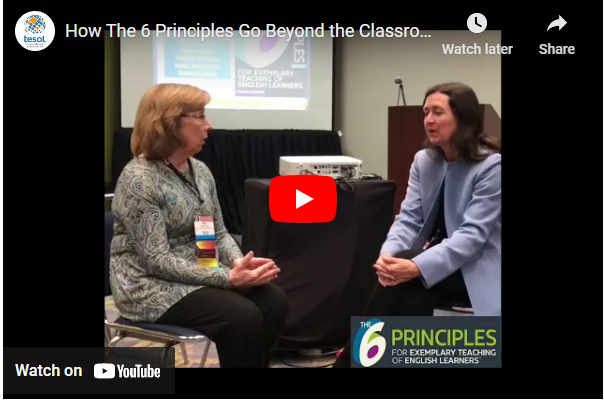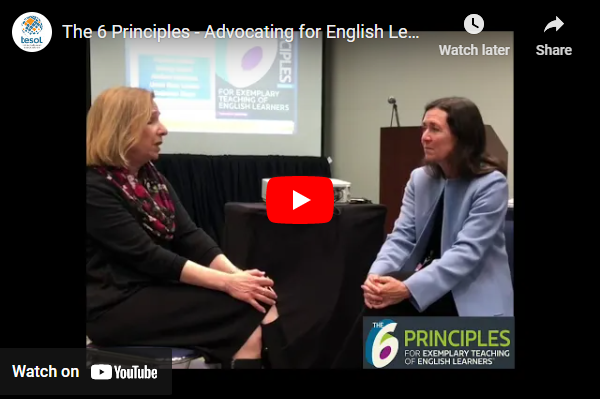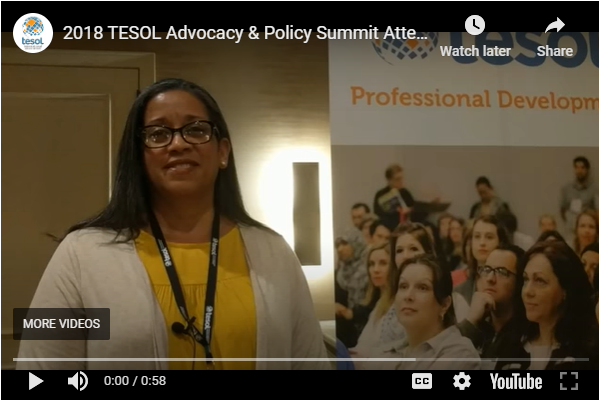Some Practices for Principle 6
Teachers collaborate with one another.
Exemplary teachers collaborate with others in the profession to provide the best possible support for their learners. They meet with colleagues to co-plan and share their expertise about second language acquisition as well as instructional techniques appropriate for students at different levels of proficiency.
Example: Teachers meet with colleagues regularly to co-plan for future learning.
ESL/ELD teachers need to become co-planners to ensure their students’ success in developing English language and content proficiency. These planning opportunities permit ESL/ELD teachers to become aware of the extent of the content learning required for students. They also allow ESL/ELD teachers to share information about students’ language proficiency with content teachers. The school administrators can help by making certain that scheduling allows teachers to collaborate with colleagues for planning.
Teachers are fully engaged in their profession.
Teachers participate in continuous learning and ongoing professional development and they also reflect critically on their own classroom practices. They develop leadership skills so they can be a resource in their school and get involved in designing programs and developing curricula.
Example: Become more engaged in your profession.
- Participate in continuous learning and ongoing professional development
- Join a professional English teaching organization like TESOL International Association
- Attend local and global conferences, like the annual TESOL International Convention & English Language Expo
- Participate in online discussions
- Develop leadership skills so you can be a resource at school and offer professional development workshops or act as a peer coach to a colleague.
Additional Roles for Teachers of English Learners
Professional Development Facilitator
Some methods of professional development are more formal, such as a series of full-day workshops, whereas others can occur informally, as when two teachers sit down and talk at lunch once a week. A combination of approaches may work best. Professional development suggestions follow:
- Presenting a workshop
- Presenting a “technique of the month” at faculty meetings
- Participating in grade-level or departmental meetings
- Joining professional learning communities (PLCs)
- Organizing “lunch and learn” sessions
- Observing and coaching or mentoring individual teachers
- Modeling a lesson or technique for colleagues
- Inviting grade-level or content teachers to observe English language classes
- Co-teaching and demonstrating techniques and debriefing afterwards
- Establishing online communities for sharing ideas, techniques, and lesson plans
Participant on School and District Committees for Programming and Policy
Serve on leadership teams to ensure that English learners’ needs are considered in district and school improvement efforts. For example:
Help design or refine academic programs for English learners as the population increases or student performance changes, such as a newcomer program for older arrivals with limited formal schooling or a new writing intervention course for long-term English learners.
Encourage the establishment of an English learner tutoring center or an afterschool program in which students receive academic support.
Advocate for a welcome center, where English learners can be assessed for services while families receive information about various district policies regarding student behavior, homework, school buses, community services, and so forth.
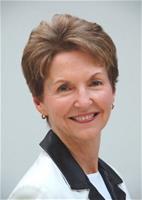
Linda New Levine
Teachers as Learning Partners: Implementing Principle 6
Linda New Levine, The 6 Principles Writing Team Member
Principle 6 calls on teachers to engage and collaborate within a community of practice. Teacher professional development is one way to promote such engagement and collaboration and it can occur in a variety of ways. As a teacher I was involved in graduate courses, fly-in consultant workshops, and ongoing summer curriculum and textbook review, but none of them helped me develop and grow professionally as much as my collaboration with Mona. Read More.
Establish a Culture of Shared Responsibility
School Principals and Assistant Principals
Consult TESOL experts, such as English language program administrators and teacher leaders from your district, teacher educators from local colleges and universities with TESOL and bilingual teacher education programs, and educational consultants with English language expertise, in the decision-making process for policies, curricula, and program development in your school. Involve them in all school committees.
Reading Specialists and Instructional Coaches
Bring all instructional personnel together in making decisions about students; respect the knowledge and skills of each person and use their expertise in forming instructional plans for English learners.
Librarians and Media Specialists
Work with classroom teachers and language specialists to design lessons that orient English learners to the school library, and teach them how to use it effectively, including how to access helpful materials online.
Nancy Cloud, The 6 Principles writing team member, talks about the importance of working with other educators and community members:
Advocate for English Learners
Take community engagement one step further by being an advocate for English learners!
Hellene Becker, The 6 Principles writing team member, suggests ways you can advocate for your students:
TESOL Advocacy & Policy Summit attendee, Jannett DuHart, shares why she advocates for her ELs, and her experience using The 6 Principles in her professional learning community:
